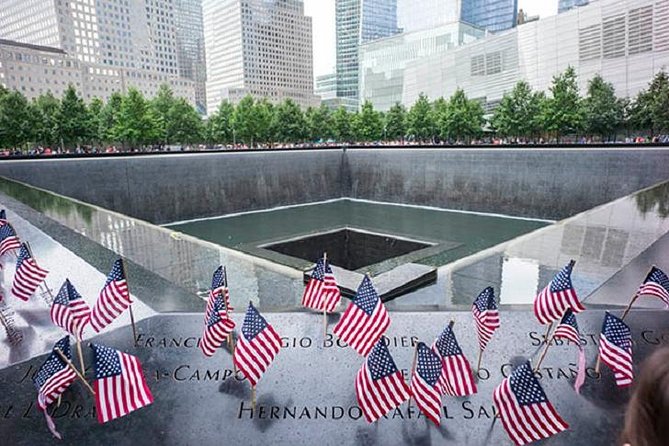.jpg?alt=media&token=2fbd7910-8c59-438c-b829-d2629636dac4)
How 9/11 Changed America Forever: The Day the World Shifted
If you were old enough to remember where you were on September 11, 2001, you know it wasn’t just another Tuesday. That morning, the world stopped, and America—bruised, shocked, and bewildered—would never be the same.
At ContentHub.guru, we often dive into culture, society, and history, but few events have left as indelible a mark as 9/11. Beyond the headlines, the memorials, and the documentaries, 9/11 reshaped how Americans live, work, and think. Let’s take a deep, narrative dive into the societal, cultural, and political shifts that continue to echo over two decades later.
The Immediate Shock: More Than Buildings Fell
The world watched in horror as the Twin Towers of the World Trade Center collapsed. Americans weren’t just seeing buildings fall—they were witnessing a profound rupture in national consciousness. Suddenly, security, risk, and vulnerability were no longer abstract concepts; they were the daily backdrop.
-
Fear and grief became national currencies. Parents clutched children on the streets. Offices held emergency drills. Airlines paused flights, and people clung to news reports with the intensity we now associate with breaking TikTok trends.
-
Unity, briefly, became the national story. Flags flew on every porch. “We will never forget” became both a promise and a mantra.
Yet beneath the surface, 9/11 planted seeds of anxiety, suspicion, and political tension that would grow over the following decades.
Political Shifts: Redefining Security and Policy
9/11 didn’t just change daily life—it rewrote the playbook of U.S. politics and international relations.
-
The Patriot Act: Signed into law in October 2001, this legislation expanded government surveillance capabilities, aiming to prevent terrorism—but also raising serious privacy debates.
-
The War on Terror: U.S. military policy shifted dramatically. Afghanistan became the first front in a global campaign, followed by Iraq in 2003. These wars reshaped foreign policy, alliances, and global perception of America.
-
Border and travel policies: TSA security lines, advanced screening, and the long-term normalization of airport scrutiny became part of the American experience.
In short: freedom and security began negotiating a new, uneasy balance.
Cultural Transformations: Art, Media, and Identity
Americans express shock in many ways, and after 9/11, media and culture reflected both grief and resilience.
-
Cinema and television: Hollywood explored themes of heroism, patriotism, and the moral complexities of war. Films like United 93 and TV shows like 24 captured post-9/11 anxiety in real-time.
-
Literature and journalism: Memoirs, essays, and investigative pieces flourished, helping citizens process the events emotionally and historically.
-
Memorialization and rituals: The creation of the National September 11 Memorial & Museum became a symbol not just of loss, but of memory and reflection.
At ContentHub.guru, we note that cultural shifts aren’t always overt—they ripple through music, fashion, digital spaces, and everyday conversations. Even hashtags like #NeverForget carry the weight of cultural memory.
Societal Changes: From Airports to Everyday Life
Ever notice how airports, public buildings, and even schools feel different today? That’s the everyday imprint of 9/11.
-
Air travel: Shoes off, liquids checked, IDs scrutinized—airports became the face of the new normal.
-
Work culture: Security protocols, remote work considerations, and corporate emergency plans all evolved.
-
Community awareness: Americans became more attuned to local threats and emergency preparedness.
9/11 reshaped behaviors we now take for granted, from online ticketing to the casual acceptance of surveillance cameras on nearly every corner.
How 9/11 Changed American Politics Forever
Beyond the immediate policy shifts, 9/11 reshaped the political landscape.
-
Elections became heavily influenced by national security rhetoric.
-
Partisan divisions sometimes deepened as debates over war, civil liberties, and government surveillance intensified.
-
Voter awareness of foreign policy and terrorism surged, permanently influencing campaign strategies.
America learned, sometimes painfully, that domestic policy and global engagement were inextricably linked in the modern era.
How-to: Understanding and Discussing 9/11 Today
Start with the facts: Review timelines from credible sources, including the 9/11 Memorial archives and government reports.
Explore personal stories: Oral histories and survivor accounts provide context beyond headlines.
Examine cultural impact: Analyze how movies, books, and media reflect societal shifts.
Discuss respectfully: Recognize the trauma while exploring broader implications on society, policy, and identity.
Connect to today: Consider how post-9/11 security, technology, and political policies affect modern life.
FAQ: 9/11 and Its Lasting Impact
Q1: How did 9/11 change daily life in America?
From airport security to emergency preparedness, nearly every public space and travel experience was permanently altered.
Q2: Did 9/11 affect American culture?
Yes. Films, books, TV, music, and digital media all reflected and processed the trauma of the event. Patriotism, heroism, and grief became recurring themes.
Q3: How did it affect U.S. politics?
National security became a top priority, influencing legislation, foreign policy, and political discourse for decades.
Q4: What lasting societal shifts can we trace to 9/11?
Surveillance, heightened airport security, changes in community awareness, and debates over civil liberties remain enduring outcomes.
Q5: Why is it important to study 9/11 today?
Understanding 9/11 helps us contextualize global politics, cultural changes, and societal behaviors that shape modern life.
The Emotional and Psychological Legacy
One of the less tangible, yet profound, changes post-9/11 is how Americans perceive risk and safety. Anxiety, patriotism, and a focus on resilience entered the collective consciousness. Communities rallied, but fears lingered. In classrooms, media, and workplaces, the specter of 9/11 subtly informs decision-making and social behavior to this day.
Closing Thoughts: A Country Forever Altered
Twenty-plus years later, 9/11 is no longer a single event in history books. It’s a prism through which we understand modern America—its policies, culture, and collective psyche. From security checkpoints to pop culture, memorials to political discourse, the events of that day left an imprint we continue to navigate today.
At ContentHub.guru, we believe that understanding 9/11 isn’t just about remembering—it’s about learning how tragedy can reshape a nation, both visibly and invisibly.
America changed, the world changed, and in some ways, every September 11th reminds us that resilience, reflection, and remembrance are enduring necessities.
Suggested for You
%20(1).webp?alt=media&token=e263928c-72b2-4de5-8273-84a3e32a81c0)
How the World Responded to 9/11: Global Shock, Solidarity, and a New Era of Security
Reading Time: 6 min
Explore how countries across the globe reacted to 9/11—from heartfelt solidarity to sweeping securit...
Read More →How Scammers Hook You: Credit Card, Phone, and Online Fraud Uncovered
Reading Time: 6 min
Learn the latest scams, fraud tactics, and warning signs to protect your money and identity. Get rea...
Read More →
The Evolution of Homeland Security Since 9/11: How America Reinvented Its Safety Playbook
Reading Time: 6 min
Since the tragic events of September 11, 2001, the U.S. has radically transformed its approach to se...
Read More →
The Dark Art of Phone Scams: How They Trick You and How to Beat Them
Reading Time: 6 min
Explore the latest phone scams, from IRS impersonators to AI deepfake calls. Learn how scammers oper...
Read More →
Comments